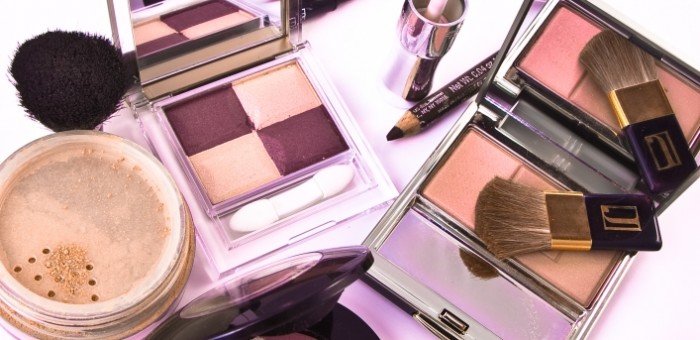Is your makeup toxic? Do you have cosmetic acne? You’ll know by evaluating your skin’s condition. If you see redness, inflammation, tiny acne-like pimples or other blemishes, it may be cosmetic acne and time to start using a new makeup.
Foundations and other facial makeup are the third leading cause of contact dermatitis among cosmetic and skin-care product users. So it is especially important to choose brands with the least number of problem ingredients, especially if you have acne prone skin. Furthermore, some brands of makeup contain a wide range of allergens and irritants.
Common Causes of Acne
Cosmetic Acne – Foundations often cause a condition known medically as cosmetic acne, characterized by very small pimples that occur intermittently. Cosmetic acne affects about one-third of all women in their twenties through their fifties at one time. If you are suffering from small blemishes, especially pimples, and you are not sure why, you should know that products containing quaternium 15 could expose you to formaldehyde, a sensitizing and allergenic ingredient for a lot of people. Furthermore, people with acne prone skin may have problems with fragrances and propylene glycol; both can sting. For some people, triethanolamine (TEA) can be irritating. These are common makeup ingredients.
Dirty Makeup – The average conventional makeup product contains a dozen or more synthetic chemicals, many of which have never been assessed for safety. Some of these chemicals are known to be hazardous. Some examples include: quaternium 15, a known allergen that releases formaldehyde (a carcinogen) into products; hormone disrupting chemicals like parabens, a preservative found in many makeup and body-care products. Most makeup also contains fragrance, an undisclosed mix of chemicals that often contains phthalates, which are linked to neurological defects in children and reproductive problems in men.
“The companies say the low levels of toxic chemicals found in their products aren’t a problem, but the fact is, most people are using 10 or more products a day, and getting exposed over and over again to the same hazardous chemicals. Companies already know how to make products without the toxic chemicals and that’s what they all should be doing. It can be difficult to find certified organic makeup, but there are still many good products out there. Look for natural ingredients, red labels all the way through to the end, choose products with fewer or no synthetic chemicals and avoid synthetic fragrance.”
New Beauty Standard
If you need to change your makeup, the products you want to use are set apart from other makeup products and lipsticks in that they contain no talc, no cornstarch or bismuth oxychloride, no parabens, no formaldehyde, none of the problem ingredients.
Conclusion
Find natural cosmetic manufacturers who have a complete makeup line certified by the Natural Products Association (NPA). In 2008, the NPA established the first and only national standard for natural personal care products. The NPA certification and official seal are awarded to personal care products that meet their strict definition of natural, and are designed to help consumers identify truly natural products and make an informed decision.
So, if you’re among the one-third of women who have acne prone skin and need a new makeup product, try natural products certified by the NPA and get rid of your cosmetic acne. Keeping your products clean and organized is a great step towards fighting off your unwanted blemishes. Learn how the Beauty Butler makes storing, finding, and caring for your makeup easy!
Comments are closed.


